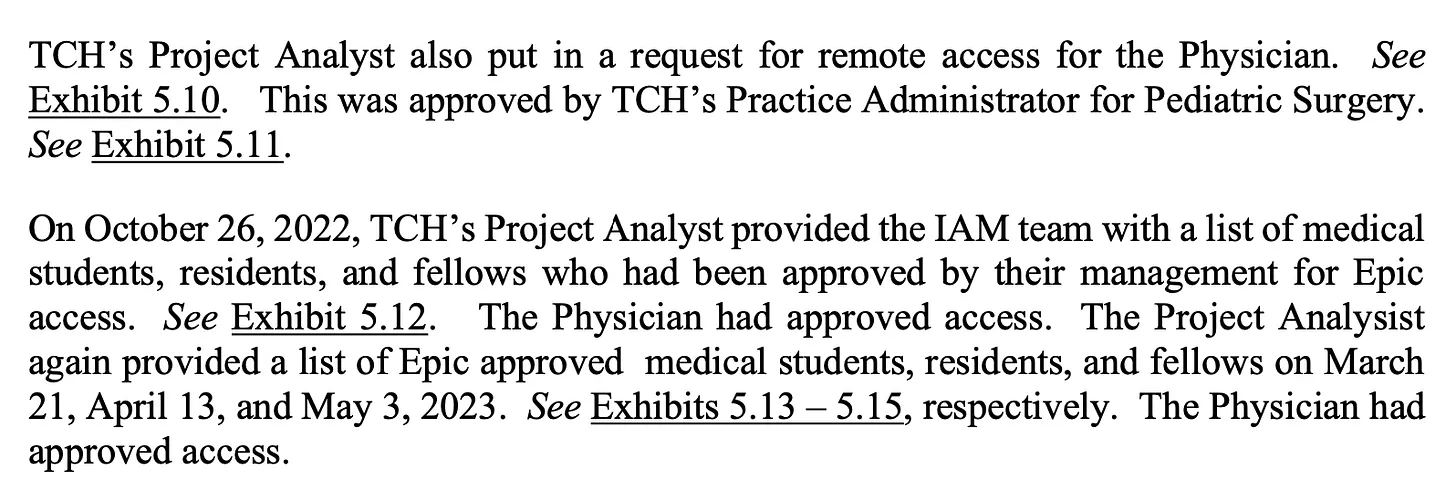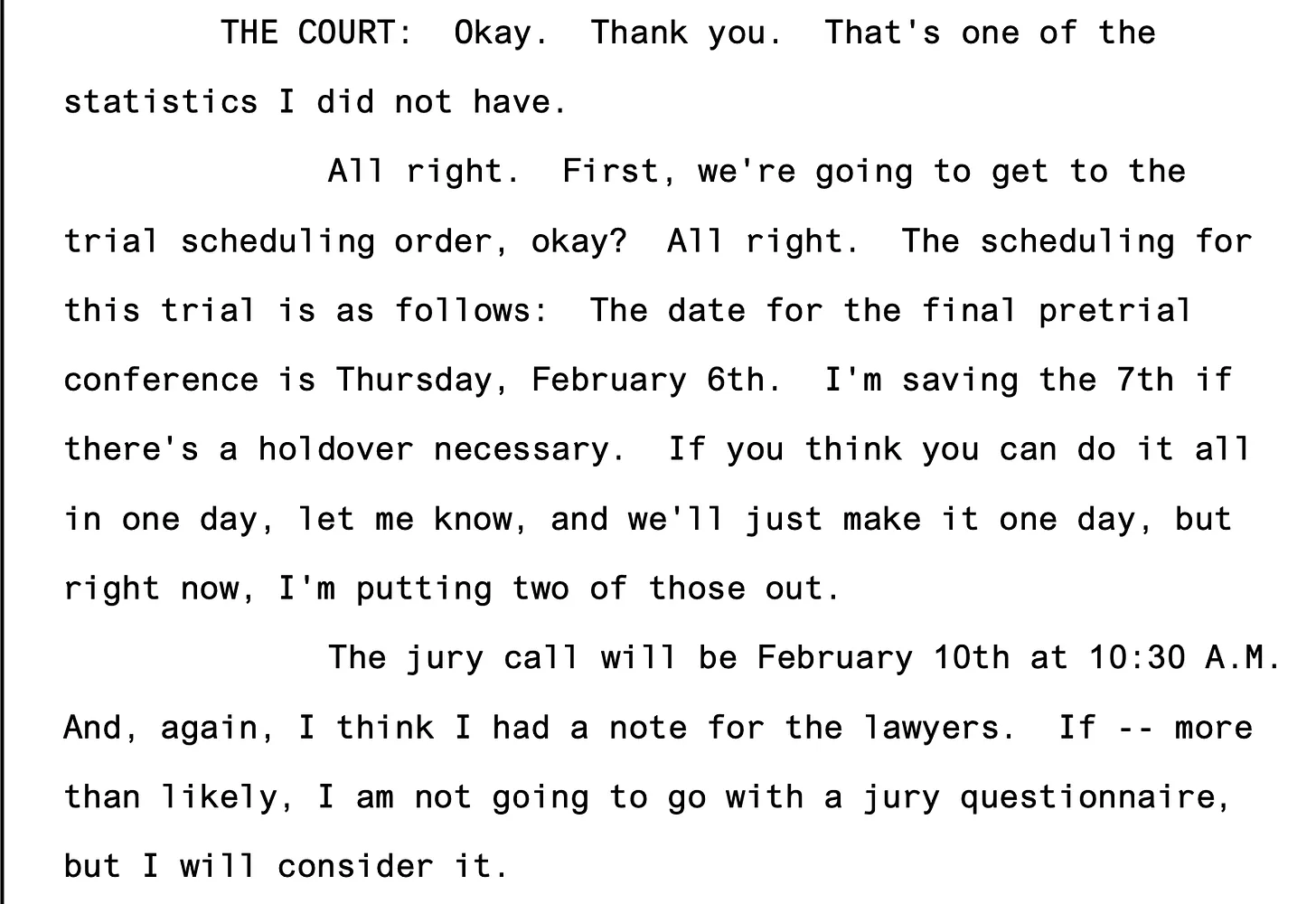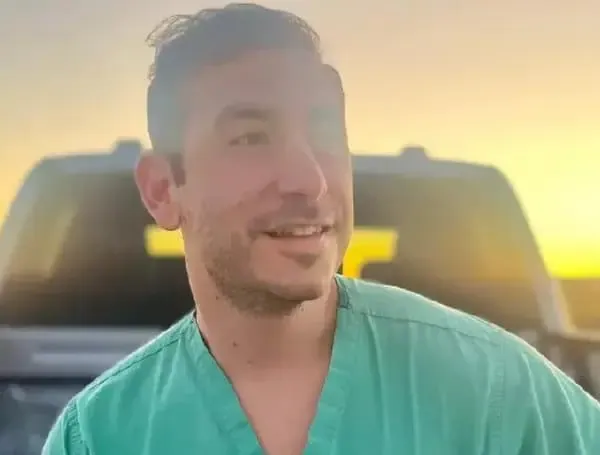Layered Prisons: Dr. Eithan Haim and the Many Costs of Professional Dissent
Tell Me How This Ends ^ | 11 Dec, 2024 | Chris Bray
Posted on 12/12/2024 9:39:51 AM PST by MtnClimber
When you read about Eithan Haim, don’t think about Eithan Haim. Think about yourself, and the world around you, and how that world works. Think about what it means to you, and what it would be like to be caught in the same traps — because you committed the simple act of speaking truthfully.
Haim is the Texas surgeon who, as a surgical resident, told Christopher Rufo that Texas Children’s Hospital (TCH) was lying when it publicly announced an end to transgender medical procedures on children. I started writing about the federal prosecution of Dr. Haim on Monday, and you can read Part One here.
There’s a long list of mysteries and unanswered questions in the matter of Eithan Haim, Texas Children’s Hospital, and the Department of Justice, and many of the TBDs will have to wait for a day when the prosecution ends. But here’s the first mystery: the disappearing government agency.
After he told Rufo that TCH was still doing transgender procedures on children, Haim completed his surgical residency with no sign of trouble. On the day that Haim and his wife were getting ready to attend the ceremony marking the end of his residency program, two friendly strangers appeared at his front door: special agents from the Department of Health and Human Services, which investigates violations of HIPAA, the federal law that protects patient privacy.
Surprised by the appearance of federal agents at his door, Haim let them in. They were, he guesses, in their mid-40s, slightly overweight, in khakis and untucked shirts, with bulges on their hips that showed they were armed. They said they had some questions about medical records. Haim settled in with the visitors at the dining room table, and they exchanged some small talk; they commented on his dog. And by the way, they said, still being friendly, do you mind if we set up this tripod for our video camera? Then Haim’s wife — who now works as an assistant US attorney handling civil matters, though not in the district that’s prosecuting her husband — walked into the room. She pulled Dr. Haim aside and told him that he was definitely not talking to the visitors, who had to leave.
They did, but the friendly visitors left behind a parting gift: a target letter from Assistant US Attorney Tina Ansari, formally notifying Haim that he was the target of a criminal investigation.
While HHS was trying to interview Haim, they were also asking TCH a long list of questions to clarify the allegations they were investigating. One of the unsealed grand jury items available in the court records is an August 30, 2023 letter from the hospital’s lawyers at Baker & Hostetler to the HHS Office of Civil Rights. You can read this letter yourself, from the public records of the case, as “Exhibit A” in this file:
Something quite important happens in this letter, because the federal indictment filed on May 29, 2023 had accused Haim of unauthorized access to medical records through the process hackers call “social hacking,” getting login credentials by chatting up someone in the office. Here’s the language of the first indictment:
14. On or about April 26, 2023, HAIM requested remote access so he could discreetly covertly access pediatric patient files for patients that were not under his care from BAYLOR and remotely rather than at TCH where his search would be more visible to other physicians.
15. HAIM obtained personal information including patient names, treatment codes, dates of service and attending physician from TCH’s electronic system without authorization and under the false pretenses that he needed to urgently attend to adult care services. In fact, no TCH pediatric or adult patients were assigned to Haim’s care.
False pretenses, covert access, “without authorization,” no patients in the hospital under Haim’s care. Federal prosecutors specifically alleged that Haim, as a resident at the Baylor College of Medicine who had, in the past, covered patient care at TCH, was no longer providing patient care at that hospital, and was faking the need for access to medical records there so he could sneak around in their computer system.
But look at the extremely clear language on pg. 6 of the Baker & Hostetler letter, which also provides a detailed list of Haim’s dates covering surgical call at TCH, showing that he was responsible for surgical care at the hospital when he was supposed to be an outsider who was sneaking into the computers there:

“The Physician had approved access.” Twice. But Haim was indicted for accessing TCH’s computer system “without authorization.” This isn’t a guess: it’s in the written record of the case, accessible on the federal court document website.
So.
Special agents at HHS investigate people breaking into electronic medical records, and they investigate the illegal release of medical records with identifiable patient information. I linked above to a HIPAA tutorial for surgeons — here’s the link again — and you’ll find this sentence on pg. 2: “The Privacy Rule does not restrict the use or disclosure of de-identified health information.” Haim was authorized to use the TCH computer system, and he gave Christopher Rufo de-identified health information. He showed that the transgender procedures were happening, but he didn’t provide records that identified who they were happening to.
In the paper trail, HHS disappears, and FBI Special Agent Paul Nixon shows up. You can find him in “Exhibit B’ of the unsealed grand jury material I’ve posted above, questioning people at TCH. Why did HHS vanish? We can only guess, and federal law enforcement agencies don’t publicly explain these choices, but the most obvious inference is that HHS didn’t see a crime.
Still, the case continued, and we have some evidence that suggests why prosecutors stayed interested when HHS apparently didn’t.
The target letter that the HHS agents handed to Haim instructed him to contact AUSA Tina Ansari to discuss the allegations. Haim hired lawyers, and they began trying to contact Ansari — who didn’t respond for six weeks. But when they finally got her on the phone, the federal prosecutor leading the effort began to say things that worried her target; several calls, Haim says, “progressively got more and more disturbing.” The federal prosecutor talked about having “a huge amount of sympathy and contact with transgender families,” and she told Haim it wasn’t his place to speak up. The real victims, she said, were the surgeons Haim had exposed.
“We knew that we were kind of dealing with a sinister actor,” Haim says.
Ansari’s deeply personal involvement with the case ended, recently, without explanation. Her name appears on the first indictment, and then on the first superseding indictment — but not on the second superseding indictment, the most recent version, filed this year on November 20.
By email, I’ve asked the US Attorney’s Office for the Southern District of Texas to explain Ansari’s involvement in the prosecution of Eithan Haim, and to explain her later withdrawal from the case. If they respond, I’ll post an update.
The most recent version of the indictment also drops the original claim that Haim used unauthorized access to the TCH computer system, and makes no claim that he released records that personally identified any patients. Instead, it alleges that Haim committed multiple felonies under HIPAA by embarrassing some doctors:
HAIM, with the intent to use the individually identifiable health information to cause malicious harm to TCH and its physicians, obtained the individually identifiable health information and disclosed portions of the health information to a media contact, PERSON1.
You see the unexplained narrative pivot, as the government claims Haim obtained “individually identifiable health information,” and says he had an intent to use it, but then doesn’t say that he actually disclosed “individually identifiable health information.” The language about what he disclosed switches to something else, “portions of the health information.” An indictment alleging HIPAA violations, disclosure of individually identifiable health information, doesn’t allege the disclosure of individually identifiable health information.
Again, I’ve asked the US Attorney’s Office for the Southern District of Texas to explain the need for superseding indictments, and I’ll post an update with their answer if I get one.
The likely outcome of all this vague prosecutorial wandering is beginning to come into focus, as the judge assigned to the case recently made an interesting and unexplained decision: He pushed the trial date back into February.

Again, we’re forced to guess the point, but a February trial date falls on the other side of January 20 — when everyone involved in the case knows that the Department of Justice is going to become less interested in prosecuting people who expose transgender surgeries on children. As Haim says, “we know there’s a very good chance this thing is going to go away.”
But the end, if it’s coming, won’t be the end. “It's not over once this case is over,” he says. Haim has received a letter from the Texas Medical Board, warning him that he’s under investigation there, and he expects civil litigation when the criminal case ends. And someone keeps obsessively posting anonymous “reviews” on WedMD that call him a vicious rapist who mutilates his patients, in a trend the administrators at his current hospital have asked about. The process, of course, is the punishment.
Haim regards the whole bizarre ordeal as a product of the degree to which activism has infiltrated institutions: activist surgeons, activist hospital administrators, activist FBI agents, activist prosecutors, “young, liberal white women” from prestigious universities — relentlessly politically focused and extremely certain that disagreement with their political premises is a manifestation of evil. He sent video of a senior physician at TCH talking about her important work with “birthing persons.” That’s the workplace environment.
Layered over the woke politics, he argues, is an older form of medical politics, in two overlapping cultures of compliance. “Doctors are kind of like the mafia. No joke,” he says. “When you break omerta, the blood oath, they'll destroy you.”
For Haim, the point has always been the need to speak truthfully, and he doesn’t regret the decision to expose surgeons who wanted to hide the gender medicine they were practicing in a children’s hospital. “There's nothing a doctor should do behind closed doors that they're not willing to defend in public,” he says. “Especially to children.”
That apparently controversial view has landed him in a world of trouble.
You can donate to Dr. Eithan Haim’s legal defense fund here. He’s raised over a million dollars, which is about half of what his legal costs have been so far. And he has a long way to go.

We all have a long way to go.
TOPICS: Health/Medicine; Society
KEYWORDS: lawfare

Hey! FReepers!
Help Fill The Tank!
How About It? Huh?
It Ain't Askin' Too Much
Ya Know....
Click here: to donate by Credit Card
Or here: to donate by PayPal
Or by mail to: Free Republic, LLC - PO Box 9771 - Fresno, CA 93794
Thank you very much and God bless you.
1 posted on 12/12/2024 9:39:51 AM PST by MtnClimber
To: MtnClimber
They used to call this a political persecution.
2 posted on 12/12/2024 9:40:22 AM PST by MtnClimber (For photos of scenery, wildlife and climbing, click on my screen name for my FR home page.)
Disclaimer: Opinions posted on Free Republic are those of the individual posters and do not necessarily represent the opinion of Free Republic or its management. All materials posted herein are protected by copyright law and the exemption for fair use of copyrighted works.
FreeRepublic.com is powered by software copyright 2000-2008 John Robinson

 By Free Republic | Created at 2024-12-12 17:43:45 | Updated at 2024-12-23 08:31:41
1 week ago
By Free Republic | Created at 2024-12-12 17:43:45 | Updated at 2024-12-23 08:31:41
1 week ago








